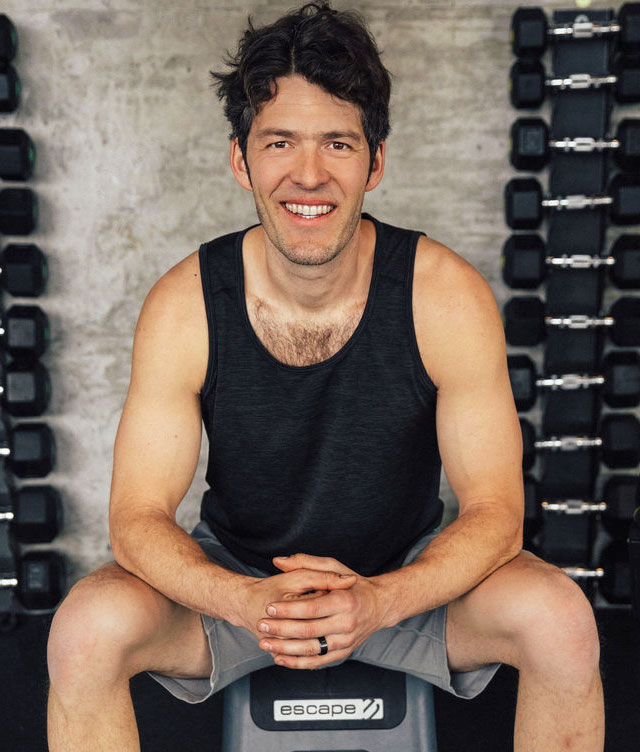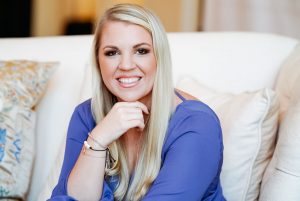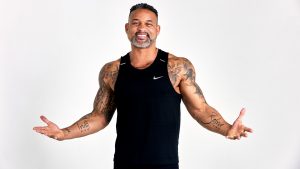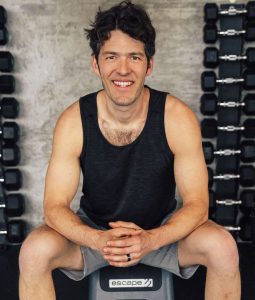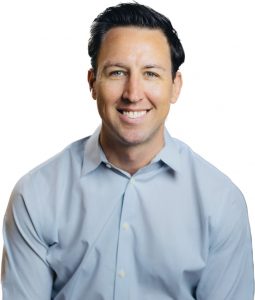SHAWN STEVENSON: Welcome to day two of the Family Health and Fitness Summit. We’ve got a really special treat for you. We’ve got somebody who’s an expert in metabolic health. We have Metabolic Mike himself here. Mike Mutzel, welcome to the summit.
MIKE MUTZEL: Thanks For having me. Happy to be here.
SHAWN STEVENSON: Awesome. Listen, I know that family health is important to you. Health overall is important to you, but why is family health and wellness so important to you?
MIKE MUTZEL: It’s a great question, Shawn. I think because like you, I had health issues growing up as a kid, and that was a consequence of eating the foods that we know to be unhealthy. So I wanna break that cycle for my daughter, you know, she’s 11. And also more importantly, pay it forward insofar as having her be a role model for other kids. Because so many parents, as we were talking about offline, are feeding their kids Oreo cookies and Cheez-Its, and the high sugar granola bars and Capri Suns still. I mean, I thought we, I don’t know, maybe my circles, you know, more evolved or informed when it comes to these things, but it’s just incredible and it’s really sad what kids are eating these days. So for me that’s really important. And just as a parent, parenting is hard as it is, as you know. And so the healthier your kid is, that just makes parenting so much more enjoyable. So getting her involved with the process of becoming young athletes and eating better foods, it just makes parenting so much easier. The moods are more stable, her energy levels better, and I want her to not have to suffer from the health issues that I suffered from as a consequence of eating Cheerios and oatmeal and, you know, donuts and all the things that we ate growing up as a kid.
SHAWN STEVENSON: You know, this is the first time that we’ve talked about this in the summit, which is how much mental expense it is when dealing with health issues with our kids. It is some of the hardest things in our universe. And also, I’m just thinking back to all the hours and days, and my mom spent in the hospital with myself, with my little brother with chronic asthma, and my sister with eczema and all the different infections. And just like, we just like children’s Hospital. They knew us, you know, and also they had a Nintendo system and we didn’t have one yet. So I kind of liked hanging out there, to be honest. But then I think back to what they were feeding us there as well, and leaving there with all these different inhalers and never again, really getting well. And so for us to all just kind of check that little box in our mind about like, this investment into our family culture or culture of wellness doesn’t make us exempt from health issues with our kids, of course, but we can definitely minimize so much of it. So let’s talk a little bit about the current state of metabolic health for the general population, in particular for kids.
MIKE MUTZEL: I mean, we’re in like alarm mode if you will, because recent NHANES data finds about 96% of the adults have some degree of metabolic dysfunction. Whether it’s pre-diabetes, diabetes and cardiovascular risk factors. So it’s a super majority of adults, and unfortunately, we’re now seeing these trends affect our children as well. The rates of obesity are at unprecedented levels, as you know, when you talk about in your new book in children, pre-diabetes, diabetes, autoimmunity, autism in young boys, all of these conditions are really surging in kids. And so this is the most powerful interventions. The foods that they eat, the content that they consume online, the exercises that they do really impact the trajectory of their life. And most importantly, I want my daughter to live a long life alongside me. You know, she’s, you know, obviously I love her and care about her, but she’s also a friend.
MIKE MUTZEL: We do stuff together, and I don’t want her to be having arthritis or some such thing, and in all that. So I think it’s really important that we, you know, studies actually show that millennials are one of the first generations that will not live… That will live a short lifespan than their parents, you know? And I think we’re probably gonna see that with these younger and younger generations even more. And I don’t know who’s gonna take care of these sick, you know, children because the parents are sick themselves. And so I think now is the time to really reinvest in family health and whole food, and getting kids involved in the process and making them aware. You know, we spend so much time on learning calculus and algebra and history, which is all good, but why don’t we teach them, you know, we eat three, four times a day. Why don’t we emphasize a lot of education on that? So I love, you know, that your new book has all these recipes that are family friendly and all that.
SHAWN STEVENSON: Yeah. Yeah. Thank you for sharing that. And also, I love that little nugget that you put in there about your daughter also being your friend. Like I, that I felt that, I felt that. Let’s talk a little bit about some of the things that you’ve done to create, and this is the thing, all of us that are part of this right now that are listening in and are involved in this summit, the fact that we want to be better parents. The fact that we want to create healthier conditions for our kids, you’re already winning. You’re already doing so much more than we might have gotten. Just the fact that you want to do better is amazing. Now, we talk about practical applications, like what are some of the things we’re intentionally doing? And you and your daughter, for example, you guys have a lot of adventures together. So let’s talk about some of the things you’ve done to create a culture of wellness in your family.
MIKE MUTZEL: Yeah, that’s a great question. On the physical side, I mean, I bring her out. I love to be out in the back country in Washington or Montana or Wyoming and do extended hikes. I mean, my daughter, you know, when she was four, she climbed up 3000 foot, you know, did the delta in terms of the elevation gain was 3000 feet over six miles. So I started her a little early and I was carrying her on my back and some of that, ’cause she was super young. But here’s the thing that I’ve noticed with that is when getting your kids involved in fitness, if you can have other people reinforce it. So she started to identify as someone who is physically active, because these adults would say, wow, you’re doing this at this age. So she started to build up a little identity.
MIKE MUTZEL: And oftentimes now when we’re out, we just went out the three of us we did like 18 miles or something over two days, and all these adults saw us coming down and they would always comment like, you’re a little young to be on this hike. Good for you. And so she starts to identify as someone who’s physically active. And so I’ll bring her to the gym with me and these things, and always adults when she can do five, bang out five pushups or pullups. And a lot of adults will look and then comment to her. So that’s what’s really cool is getting them to just identify as a healthy person and to become different, and as someone who’s strong. And then that ties into the healthy nutrition because she realizes that the foods that she’s eating, we have raw milk at home, a lot of protein.
MIKE MUTZEL: We’re soaking and sprouting grains like wild black rice, for example. We have a small little garden, so we have potatoes and yams and things like that. And she’s involved in the process, you know, and so I think that’s the, in terms of practicality, getting your kids involved. You know, sometimes I go to the grocery store and I see families shopping. It’s usually the mom doing the shopping, and the kids on the iPhone or the iPad totally disengaged with the process. So for her, when we go to the store, I give her a bag and say, “Hey, go fill this up with those mushrooms.” And she knows the mushrooms that we buy. “Hey, can you go put three avocados in the cart?” And so I’m giving her little tasks so that she knows what foods that we eat in our family and how those foods are gonna be prepared, and what most importantly, they do for her vitality and her energy.
MIKE MUTZEL: Because she wants to be someone that’s healthy because her peers are eating the Oreos, the Cheez-Its, the Capri Suns and she’s starting to see that they’re having health issues, whether they’re overweight or in PE class, they can’t keep up. Even the boys, you know, that theoretically should be stronger than her, aren’t as fast. And so she’s starting to just make these observations. Now, I understand for some people, this could be hard if they’re going from processed junk food or, you know, growing up we would go to Taco Bell for dinner. I mean, I get it, right? So it, it’s gonna take baby steps. But I think pairing the fitness and the sports with the healthy nutrition, and most importantly above all else, and this is a harder sell sometimes, is getting the spouse on board. It’s really tough if mom’s into this and dad’s not.
MIKE MUTZEL: And so I think making sure that you sit down as a family and make a choice, you know, like, we invest in our 401K and our retirement, why aren’t we investing in our health? You know, because that’s, at the end of the day, all that matters. You know, Steve Jobs had all the money in the world, but couldn’t reclaim his health with that wealth. And so reinvesting in terms of food and nutrition and making it more of a lifestyle, and then getting kids proactive in that. So if we’re cooking just eggs, for example, we wanna sauté a little onion beforehand. I’ll have her peel the onion and start to cut it up and then tell her, “Hey, turn on the gas burner, melt a little butter.” So she’s starting to learn these steps, and I think getting them involved really helps them get more excited about the foods they’re eating. And then most importantly, above all, when they’re adults, they’ll know how to cook. You know, most people don’t know how to cook, and that’s why they eat these processed foods because they haven’t been taught how to cook.
SHAWN STEVENSON: Yeah. Oh, wow. That’s such great tips. Listen, I just had my son to, you know, he’s been doing his laundry on his own for quite some time. He just turned 12, but for years, and it’s one of those things, one of our other summer speakers Katie Wellness Mama, Katie Wells going to her house and she has six kids. And just seeing, like, her youngest was like three or four and is like doing laundry. I’m just like, what? Like, I didn’t know that this was possible. But then of course, it’s just like, of course, like these kids can do all these crazy things with their technology and iPads and things like that, but it’s just us taking the time to walk them through the process. So he just did something like put some laundry on top of the machine, on top of some wet stuff or whatever.
SHAWN STEVENSON: I’m just like, I’m questioning why did he do that? But I didn’t give him a directive on like, what to do if there’s stuff right here. You know, it’s just, so I’m pointing to this to say that in the grocery store, a lot of times we want to get the right thing, and so we might not want our kid to go and get the thing. And so there’s certain things that I automatically just say, you know, “Hey, can you go grab whatever?” But a lot of times I want to firsthand pick certain things because I’ve never taken the time to just walk him through it, you know, once or twice and just give him some insight. Because the thing is, with my son, when I teach him the thing, he’s got the thing, like he’s just, he’s that kind of person. His personality is, all you need to do is just inform me because what I could’ve done is come downstairs like, why you put my stuff on there?
SHAWN STEVENSON: Why you do that? Yeah. But just like, he would’ve been like, you didn’t tell me. It’s just like, well, you’re right. Because I would think like, you should just know this. But again, if we don’t teach our kids, then they oftentimes won’t know. And there’s this great proverb from my mother-in-law going back from her culture in Kenya that if your mother doesn’t teach you, the world will, right? If your parent doesn’t teach you, the world will teach you. And usually it’s gonna be through suffering. And so giving our kids these little bits of insight, but, and I understand, of course, going to the grocery store and, you know, you’re just trying to get in and get out and/or, you know, your kid is, you know, giving you a hard time. So we try to do things to distract them, but here’s you, when you said that, as soon as you said that, I’m like, oh, wow.
SHAWN STEVENSON: Like she’s involved in the process. She has things to do. So yes, we are gonna be more attentive on that, but we would still be being attentive on trying to keep our kid distracted, right? So it’s like you get to pick which one and one of them is gonna be more fruitful long term. So we’ve got a couple of great tips here. Giving your kids jobs at the grocery store, at the market, and also you mentioned environmental reinforcement that was happening for your daughter, you know, being on these hikes or being in the gym, whatever the case might be. Having other people, this is a secret sauce here, because it’s one thing, the parent proximity sometimes might not be enough. And oftentimes actually, because there’s this statement, you can’t be a prophet in your own land sometimes, but we are our kid’s superhero. But also then the peers start to influence them. And so getting other voices to reaffirm their behaviors, that’s a game changer.
MIKE MUTZEL: It’s huge. I mean, that’s been incredible. And I didn’t know that would actually happen. I just have observed it. And then I start to realize that now she actually wants to go exercise. She wants to walk after dinner, she wants to do these things because she, I think is, you know, we’re, we all want attention at some level. And then, you know, the other people are a source of attention, you know, if she’s doing those endeavors. So yeah, I, it is hard to transition kids off screens and junk food in this. I understand all that. And then we’ll still go out for ice cream occasionally, or have a treat. But the idea is that we’re doing those on days where we do a lot of exercise and we earn it. So just instilling these things into her, these, you know, these sort of pleasure foods are periodic treats, not a staple.
MIKE MUTZEL: But yeah, getting them involved is key. Because kids, like you said, I mean, a 4-year-old can do laundry but most people just, they’d rather just do it ’cause they have their way of doing it faster or whatever else. But kids can do a lot. You know, back in the day, I mean, kids would gather wood or you fill in the blank, they would help out on the farm, the ranch, the homestead. And so I think we need to give kids a little bit more credit. They’re capable of doing these things.
SHAWN STEVENSON: Yeah. My wife, being from Kenya, when she was that age, she was washing with her hands, hand washing, and she was talking about like, I used to hate, you know, my knuckles or whatever. And also like plucking chickens, all this stuff, and just like, what? When you were what age? And you know, today, again, we’re very insulated and also just because we are busy. We got a lot of stress. We got a lot of things on our plate. Sometimes we just don’t want to deal with it, but it ends up being harder for us later on. So that’s part of this process in this summit is like, let’s talk about some simple things that we can do. Just put our attention on it. And I love this, like, one of my big takeaways is next time I go to the grocery store with my son to point him in the direction, but I need to like, oh, this is how we pick the avocados we want.
MIKE MUTZEL: Little soft.
SHAWN STEVENSON: You Know? Yeah. You know, so like, I’m gonna be hands-on, let me give him these instruction points so that when we come into supermarket, which he likes to get in and get out by the way. So that he can execute on his task. We can work together as a team.
MIKE MUTZEL: That’s key.
SHAWN STEVENSON: I wanna ask you about dealing with a picky eater. All right. Those situations, a lot of parents deal with that. Do you have any tips for parents on expanding the range of foods that their kids are eating?
MIKE MUTZEL: This is a great question. And I guess I’m blessed that my daughter’s not a picky eater. And, but I also don’t know if that’s because she hasn’t had these hyper palatable foods. You know, I think what the observation that I found with my daughter’s friends, the picky eaters are the ones that are primarily eating junk food. And so you’re going from Doritos and Cheetos and pop tarts to lamb or eggs. And so there’s just not a lot of sensory profiles with that. So I think a slow transition is best, but also leveraging herbs and spices. There’s the ingredients that make foods flavorful, salt, fat, sugar, right? So if we’re minimizing sugar, then we’re gonna have to increase the fat, the salt, and the flavoring profile. So, you know, for those picky eaters, when our friends come over, you know, we’re having usually lamb, I found kids they love the lamb or grass fed, you know, just ground beef.
MIKE MUTZEL: And I’ll sprinkle things in there like carrots or sweet potatoes or other things that don’t have… I’ve never found a kid that likes mushrooms. I love mushrooms, but they just don’t like the palatability or the texture of that. So just trying to make things that are more flavorful. So sneak it in there. You know, most kids won’t like a raw carrot, but if you sauté it in ghee or lard or some sort of beef fat, they generally like that. So that’s how I go about it. But I can understand that it’s gonna be tough for some kids, especially if they’re autistic or have Asperger’s or some of these sensory conditions, neurodivergent conditions, then that’s gonna be challenging. But paprika seems to really help. I know it sounds a little weird for people.
MIKE MUTZEL: There’s this spice blend that has organ meats and salt in it called pluck. A guy, James started this in Portland, Oregon, so we subscribe to that. I don’t have any financial ties with them, but that actually has liver, has bovine liver, kidney, spleen, and a little heart in there. So you’re getting some organs in there as well. And when I sneak that into my daughter’s food, she never knows that she’s getting organs, you know, and the micronutrients that are linked with that, and it has salt in there. And so that really helps flavor some of these profiles up as well. But yeah, one thing we do too, a friend of mine, Bill Schindler, wrote this book called Eat Like a Human, and it’s all about how to ferment and make foods more… Minimize the anti-nutrient load in the foods.
MIKE MUTZEL: And so we’ve been fermenting potatoes and then making potato chips at home. So that’s been really cool. There’s just an easy, I think it’s called easy fermentation kit on Amazon. It was like 29 bucks. You just you know, put a little salt brine in there, cut up the potatoes, pull the skin off, and she loves those instead of having potato chips. You know, we’ll take some of that Siete Kitchen almond tortilla wraps, and then sauté those in butter and put little salt, and we’ll have that instead of like chips, you know? So just different things you can still you know, have sort of the foods that people are used to eating, but minimizing those hyper palatable flavor profiles that increase all these sensory overload. And then it again causes the perception that real food doesn’t taste good.
SHAWN STEVENSON: We’re taking back control of our palate.
MIKE MUTZEL: Yes.
SHAWN STEVENSON: I love this. Awesome. So you mentioned a term there that I don’t want to sneak past. You said anti-nutrients, what is that?
MIKE MUTZEL: Yeah, so you’ve talked a lot about this on the show before, the lectins, the oxalates, the phytates, these are compounds that actually cause gastrointestinal dysfunction and exacerbate autoimmunity in children and adults as well. So preparing foods in such a way to minimize the anti-nutrient load. And so one of the things that we do is we’ll just peel the potatoes or yams or sweet potatoes before we cook them to minimize the anti-nutrients, the oxalates specifically in that before we cook rice and this is a little tip for saving money. There’s all these restaurants supply stores where like the local Chinese restaurant will buy the bag of organic rice. So I go there and buy this non-GMO rice. It’s literally 29 bucks and it lasts like three months. And so what we’ll do, the whole point of that is we’ll soak that overnight before we cook it in the pressure cooker or the crockpot to minimize some of the phytic acid and the anti-nutrients in the rice.
MIKE MUTZEL: And it just increases the digestibility. So the rice that I make is more like kanji, like it’s really soft and tastes good, and then it’ll take on any other flavors that we put in there. And so what I like to do is cook in in bulk, you know, that way it’s like we always have stuff for her lunch, we always have stuff for our lunches, for dinner. Like it’s easy. And then I get her involved with that. And so just simple things can increase the palatability. So if people want to get away from pasta and maybe have a little bit of rice, sometimes rice can take a long time to cook, and it’s like, oh, it gets stuck to the pan. Soaking it ahead of time makes it more digestible, takes the phytic acid out, and then it tastes so much better too.
SHAWN STEVENSON: Awesome. Awesome. I want to ask you specifically about school lunches. All right. You mentioned a little bit in the opening, and this is a really interesting phenomenon where, you know, there was a time period when I was living with my grandmother and I would take my lunch to school. You know, this was a lunchbox era, you know, in the ’80s where, you know, I got like Transformers on the lunchbox or whatever. I got the thermos in there, it’s full of that fruit punch was my drink of choice. On the rocks. I’m just kidding. I didn’t have ice in it probably, but, you know, and then some form of a sandwich with, you know, the lowest quality meat possible, you know, some kind of baloney with like cheese already embedded into the baloney itself. And just all manner of just kind of the things that kids were eating.
SHAWN STEVENSON: And then moving with my mother in the inner city, now being in a low income environment, now I’m on the free lunch program And also free breakfast. Like, I didn’t get to eat breakfast unless I ate at school actually, and I get this little red ticket and you better hold, you better take care of that little red ticket. When you get there, man. It was like, my favorite part of the day was getting that breakfast when you get, and I literally, I can see the line. You know, it’s like this one room, this strange room where you kind of walk around a little bin and you get whatever is on the, you know, what they’re handing out that day. It could be a glazed donut and some milk and a juice. It could be personalized, which was always my favorite. Those personal servings of cereal, like Frosted Flakes would be frequent Fruit Loops, that kind of stuff.
SHAWN STEVENSON: These are the things we’re starting our day with. Not to mention the lunch, which is like pizza or some, I just thought about this yesterday actually, because Jo, I was eating with my oldest son. I was eating this incredible fish that we, that’s actually in the Eat Smarter Family Cookbook. It’s a breaded delicious fish, kind of like marinated with this kelp butter. And we were eating and he’s like, what does this remind you of? I was like, this is like a soft chicken. It just reminded me. And I remember when I was in third grade and we get these “chicken tenders”, but the meat was like, there wasn’t really chicken. There was something else going on here. And that’s what it put me in the mind of. Right? And so of course I’m just drenching it in copious amounts of ketchup or whatever. And these are the foods that we’re eating, chips and sodas. And when I got to high school, they were coming into the school and like all the time, because I went to a “nice high school”, nice area. So all these processed food manufacturers would come on campus and give, do giveaways all the time, all the time. With that being said, that’s the current state of affairs for decades. What are some of the tips that you have as far as what we can look to do for our kids for school lunches?
MIKE MUTZEL: This is, I think, the biggest fight of our times. You know, a lot of parents don’t have time to make the lunches or the resources or what have you. In my daughter’s class, she’s now in middle school, so they eat separately, but she was one of two kids, you know, and we live in a fairly affluent area, Kirkland, Washington, a lot of Microsoft and Boeing and tech people. And so most of the parents just relied upon the school lunch. And so if you’re giving your kid the school lunch and you have the resources to help them, you’re just fighting an uphill battle because their mood is gonna be all over the place and you’re setting them up for all sorts of disease. I like to make it fun and find foods that work for her that she likes.
MIKE MUTZEL: And I found that she’ll consistently eat the lamb and the soaked rice that I mentioned and cooking that together and using the lamb fat and the salt, putting some fruit in there, some grapes, cut up apples. What are some other things? Raw cheese. We put cheese in there. Just make it fun, you know, and easy to eat as well. Pre-slice it ahead of time the night before. It’s in the fridge, so there’s no excuse in the morning if you don’t have time. It’s just, it’s ready to go. It’s part of the evening routine. And that’s been helpful. And so oftentimes, I mean, she’ll come back and she’ll tell me like, “Oh yeah, some kid was having Cheez-Its, and offered me some, and dad, they were so good but I know they’re bad for me, so I’m not gonna eat them again.”
MIKE MUTZEL: You know, kind of thing. That’s what we do. But yeah, the school lunch, it’s pretty appalling because the food service companies are Kellogg’s, General Mills, all of that. They have contracts with the school district and what’s being offered is not congruent with long-term health or learning. I mean, if we’re being honest, we’re sending our kids to school to presumably learn. And how can you learn in that environment if your blood sugar’s doing this all the time. And yeah, it’s really unfortunate. I don’t know what the solution is in terms of how to fix that. Big challenge, but just opt your kid out by giving them healthy foods. And then somehow trying to get them to associate eating those foods with better mood, better sleep and better wellbeing is more helpful. So yeah, like I said, I sound biased. The grass-fed lamb, that’s been super helpful. Now that is expensive, I realize. But those spices, the pluck spice, I really like that. You know, a little ketchup. I use the Primal Kitchen ketchup or mayonnaise, mixing that around just an easy way. They just use avocado oil. It’s not canola or soybean. Some of those things just make it much more palatable and she’ll actually, she’ll eat it all. And she’s satiated.
SHAWN STEVENSON: And familiar, you know, with the ketchup and the fruit and apple slices, those kind of things. And, you know, I think also a good source, resource for us as parents is the leftovers are pretty awesome for our kids to take to school with them. And also, you know, again, there’s bridges here. It isn’t just like all or nothing. Even if we’re giving our kids a sandwich to take to school, we can get some sourdough bread, we can get some nitrate free ham or turkey, whatever the case might be. That it’s just like a higher quality. You just mentioned raw cheese or whatever the case might be, just higher quality ingredients. We could do our best there, because I’ve got a question for you. Another thing that we do, by the way, sometimes, ’cause it mentioned those chicken tenders, you know, we’ll get some like free range chicken tenders that, you know, my wife might, you know, heat up in the morning and he could take that. We get some high quality, like the ketchup you just mentioned and put it in a little container. And, you know, he takes that along with some fruit and things again, like this is very familiar. So this is my question for you, because if your daughter’s coming in, she’s got the lamb, you know, what about being like different, you know, little, like what if the kids are like, what is that?
MIKE MUTZEL: That is tough. I mean, I’m not in her shoes. I haven’t physically, but I’m sure there is some of that. But luckily in her school, it’s very diverse. There’s a lot of kids from India and Eastern Asia and their parents are big on. So I think that’s her saving grace. And so she’s, those tend to actually be her friends that she kind of hangs out with during lunchtime. And she’ll tell me one of her best friends her mother’s Egyptian. And so they’re making a lot of lentils and these different things. So she’s not the only kind of weird kid, but I can see the pressure, especially as they get into high school, you know? ‘Cause most of the kids in high school are eating the school lunch or they’re having, you know, junk food.
MIKE MUTZEL: So that’s a, I don’t know how I’m gonna handle that other than, again, tethering the food with increased fitness and then the fitness is a source of attention. So trying to create some sort of accountability in that way. Yeah, it’s tough. And then, like you said going back to getting the kids involved, we also have backyard chickens, and I think that really helps indirectly because she’s out there, one of her chores when she gets home is to go get the chicken eggs and then the morning put out the food. And so she’s just, you know, aware that like, this is what we do. And so as a family, we eat the real food. And so I don’t know if it’s gonna work long-term in my favor. Maybe in college she’ll binge on all this stuff. I don’t know. I mean, hopefully that doesn’t happen on all the junk food because she’s never really had it.
MIKE MUTZEL: But we don’t go to McDonald’s. We don’t go to Chick-fil-A. We don’t do some of that. And so she just now identifies with a person who eats real food, you know? So I think that’s the ultimate goal for parents is to get your child to identify, as a family, this is what we do. You know, like as a family, this is what we do on Thanksgiving. As a family, this is what we do on Christmas and as a family, this is how we eat. We’re the type of people that eat this way. And so just reinforcing those identities and beliefs and values early on, I think it’ll pay dividends long term, you know?
SHAWN STEVENSON: Yeah. It’s planting seeds. You know, that’s what it’s really all about. And also, of course, understanding our kid is gonna be in the world, just stack conditions in our favor the best that we can. And also, again, just giving ourselves some grace and understand we’re just, we’re in the process of figuring these things out. And it’s so much easier when we’re doing this together, when we’ve got other parents, we’ve got other voices to support us. And that’s what this summit is really all about. And you’re such a great resource just overall for our health, for our fitness. Can you let folks know where they can connect with you more and just get more into your world?
MIKE MUTZEL: Sure. Well, thanks Shawn, for the opportunity. Yeah. So, I put out a lot of videos on YouTube, highintensityhealth.com, so if folks want more about that, you know, it’s more science and things like that on YouTube and then on Instagram, Metabolic Mike.
SHAWN STEVENSON: Boom, there it is.
MIKE MUTZEL: Thanks for having me on.
SHAWN STEVENSON: Of course. Thank you so much for your contribution. And listen, we’ve got much more in store for you in the Family Health and Fitness Summit. This is about wellness, this is about family, this is about connection and about shifting the culture. Take care. I’ll talk with you soon.
